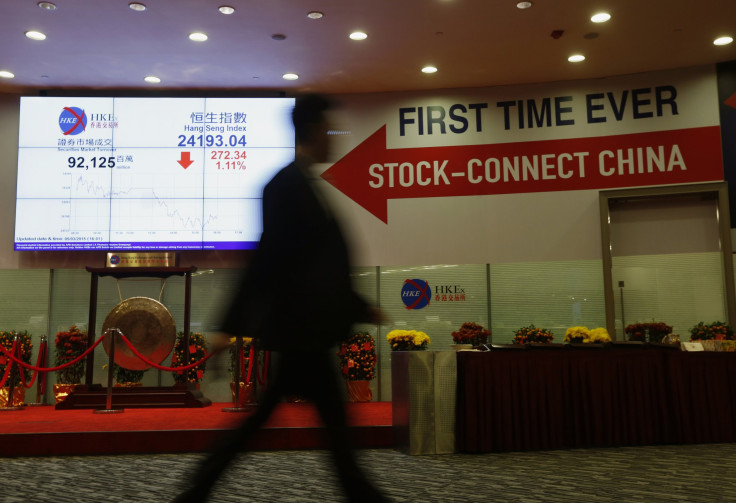Hong Kong Investors Seek More Oversight After $35 Billion Loss

The Hong Kong stock market lost $35 billion over two days, prompting investors to call for greater oversight by the country's market regulator. Goldin Financial Holdings Ltd and Goldin Properties Holdings Ltd, both controlled by the billionaire Pan Sutong, fell by over 40 percent on Thursday. The plunge came one day after Hanergy Thin Film Power Group Ltd lost 47 percent of its value in a span of 20 minutes.
The stocks had surged by at least 500 percent in the year preceding this week’s fall.
Unlike most other major markets, the Hong Kong Stock Exchange (HKEx) does not intervene when an individual stock’s prices change dramatically. However, it is now seeing a new influx of buyers and investors from the mainland, prompted by an exchange link between HKEx and the highly volatile Shanghai exchange that was opened in November, Bloomberg reported.
Last month, the turnover of Hong Kong shares traded through the link reached a record HK$235 billion ($30 billion), almost sevenfold compared to that in March. The number of Hong Kong stocks available for trading to mainland investors increased by an average of 30 percent this year, compared with a 17 percent growth for the Hang Seng Index, according to Bloomberg.
The three routed stocks were all connected to the Shanghai exchange -- which means they could also be bought and sold by mainland investors -- exposing them to volatility from the mainland.
“Small time mom-and-pop investors are going to be badly burned,” Niklas Hageback, a partner at Valkyria Kapital Ltd, told Bloomberg. He added that the regulators “need to act, if not on the hour at least on the day, and they’re not doing it.”
Hao Hong at Bocom International Holdings Co.'s chief China strategist told Bloomberg that he believed there was a need for regulators to do more to prevent price manipulation. “They believe that, because the information is public, it’s up to the investors to read before they buy stocks,” Hong said, adding: “The problem with this kind of approach is that you can’t fend off market price manipulation.”
Several major Chinese asset managers have warned of an “irrational exuberance” in mainland stock markets, which last month recorded trading volumes of 1.15 trillion yuan ($185 billion) -- the first time it has exceeded the one-trillion mark.
Hong Kong is also considering the possibility of instituting “circuit breakers,” which would automatically suspend trading after major price movements, according to the Financial Times.
Currently, Hong Kong does not limit single-day trading or price changes, but it can issue prolonged suspensions for stocks deemed too volatile, sometimes for months at a time. The stock falls raised concerns that Hanergy Thin Film could now be put on HKEx’s prolonged suspension list.
Hong Kong’s Securities and Futures Commission Chairman Carlson Tong vowed to crack down on "any unusual share movement," but added that market volatility was "natural" due to a massive influx of capital from the mainland, Bloomberg reported.
© Copyright IBTimes 2025. All rights reserved.





















